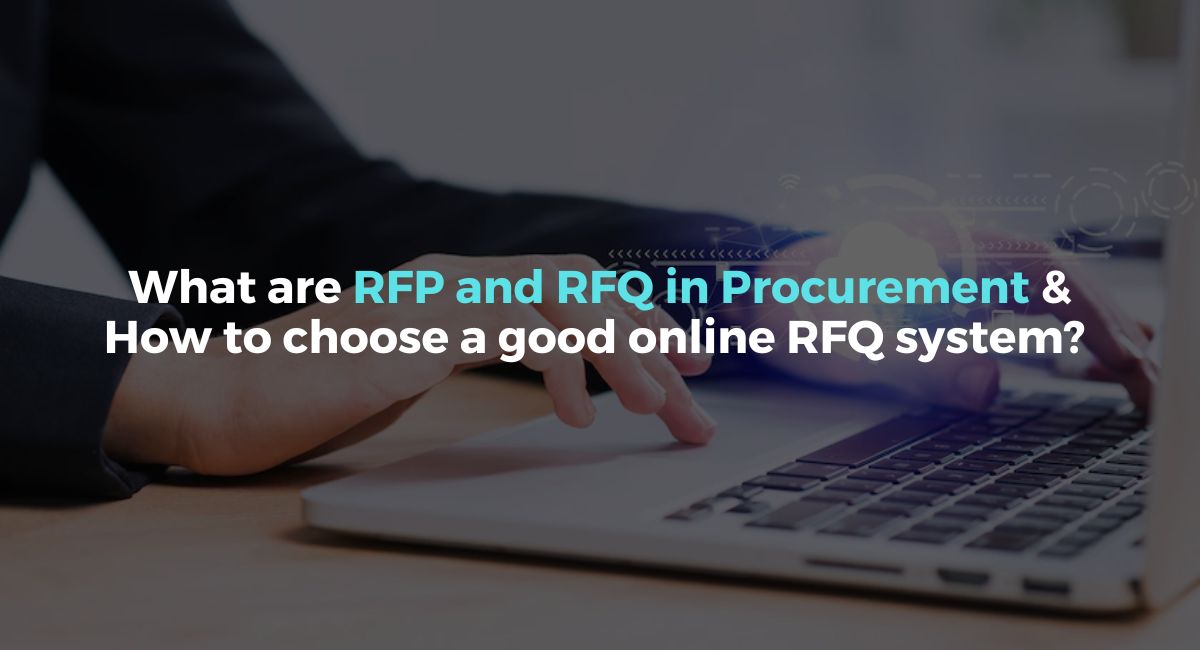What are RFP and RFQ in Procurement & How to choose a good online RFQ system?
RFP and RFQ in Procurement:
An RFP (Request for Proposal) is a document that is used in the procurement process to invite suppliers to provide a proposal for the supply of goods or services. It typically includes a detailed description of the goods or services that are being requested, as well as the terms and conditions under which the proposal will be evaluated and the contract awarded. RFPs are typically used when a company is looking to purchase a large or complex product or service and wants to evaluate multiple proposals from different suppliers.
An RFQ (Request for Quotation) is similar to an RFP but is typically used for smaller purchases or for more straightforward goods or services. An RFQ typically includes a brief description of the goods or services that are being requested, as well as the terms and conditions under which the quotation will be evaluated and the contract awarded. RFQs are typically used when a company is looking for a quick and simple way to obtain a quote for a product or service, rather than a more detailed proposal.
When choosing an online RFQ system, there are several factors that you should consider:
- Ease of use: The system should be easy to use for both you and your suppliers. Look for a system with a user-friendly interface and clear instructions for how to create and submit RFQs.
- Customization: You should be able to customize the system to meet your specific needs, such as by setting up different RFQ templates for different types of goods or services, or by setting up custom fields for capturing specific information from suppliers.
- Collaboration: The system should allow for easy collaboration between you and your suppliers, such as by allowing suppliers to view and respond to RFQs online, or by allowing you to communicate with suppliers directly through the system.
- Security: Make sure that the system is secure and that your data is protected. Look for a system with strong security measures in places, such as encryption and secure login protocols.
- Integration: If you use other procurement or supply chain management tools, look for a system that can integrate with those tools to provide a seamless experience.
- Support: Choose a system that offers good customer support, so you can get help if you have any questions or run into any issues.
- Cost: Consider the overall cost of the system, including any upfront fees, ongoing subscription fees, and any additional costs for customizations or additional features.
Ever thought about a smart RFQ platform to improve your business profitability? ProcurEngine is an advanced digital cloud-based eRFx platform. For more info, please click the link.


Comments
Post a Comment